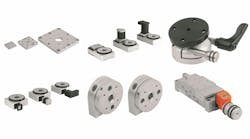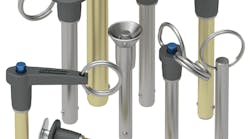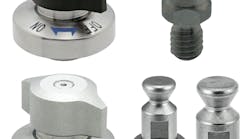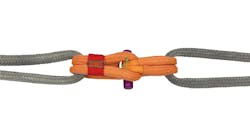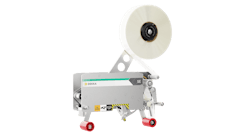Thirty years devoted to the manufacture and sales of concrete fasteners will add up to a wealth of knowledge about these products. Three decades of providing answers to questions from customers will also result in hearing many of the same questions repeated.
According to Bob Carlisle, President of Concrete Fastening Systems, Inc., the top five questions and their answers that have been asked about concrete fasteners since he founded the company in 1988 are listed below:
What are the head sizes of a tapcon?
Standard Blue Tapcons
The head size is determined by the diameter and type of Tapcon being used. The reason the head size is important is to match up the correct driver for installation. Tapcon are available in a flat phillips and a hex washer head. The flat phillips requires the use of a phillips type drive and the hex washer head requires a hex driver. The 3/16 in. tapcon is designed for a #2 phillips drive to be used and the 1/4 in. is a #3 phillips drive. The 3/16 in. hex washer head is designed to be used with a 1/4 in. hex driver and the 1/4 in. requires a 5/16 in. hex driver.
Large Diameter Tapcon
The large diameter Tapcon are only manufactured with a hex washer head, and require the use of a hex driver to install the anchor. Each diameter requires a different sized drive:
Anchor Diameter Hex Driver
- 3/8” 9/16"
- 2” 3/4"
- 5/8" 13/16”
- 3/4” 15/16”
How far apart do wedge anchors need to be placed from one another? What are the spacing requirements for concrete anchors?
Expansion type anchors exert an outward force into the concrete once properly installed. This outward expansion exerts pressure against the concrete from the deepest embedment all the way to the surface. Anchor placed too close together will decrease the holding values of both anchors. The rule of thumb in the expansion anchor industry is for expansion anchors to be spaced a minimum of 10 anchor diameters apart from each other, with the distance measured from center of anchor to center of anchor Keep in mind that some manufacturers of anchors may have special requirements for a certain anchor, which should be clearly specified.
What is the best type of anchor to use with ACQ lumber?
Concrete screws have a coating called Climaseal® which provides extra corrosion resistance and are acceptable for use in ACQ pressure treated lumber in outdoor applications. Tapcon screws that are well suited for outdoor use include the 410 stainless steel screw which is also Climaseal® coated. The hot-dipped galvanized wedge anchor provides moderate resistance to rust. Stainless steel wedge anchors are well suited for use outdoors and are available in 303, 304 and 316 stainless steel. The cost of the anchor increases in proportion to the level of rust resistance the steel or coating provides.
It is important to note that zinc plated anchors should never be used in ACQ treated lumber.
What size screw or bolt is used in an internally threaded anchor?
Internally threaded anchors are designated by the internal bolt diameter. The size of the anchor refers to the diameter of the machine screw, bolt or threaded rod to be used with this fastener.
What is considered to be the best concrete fastener for outdoor applications?
The best type of concrete fastener to use outdoors is based on the atmosphere and the requirements of the application. The plating, coating and type of material the fastener is made from will determine the amount of rust resistance performance.
- Zinc Plating – provides minimum rust resistance and should only be used in dry atmospheres
- Hot-Dip Galvanized – great for moist atmospheres and is only used on the wedge type anchors
- 303/304 Stainless Steel – works well in wet environments, and is available in wedge anchors, sleeve anchors and drop-in anchors
- 316 Stainless Steel – designed for use in submerged environments where chemicals may be present; available in wedge anchors or drop-in anchors


